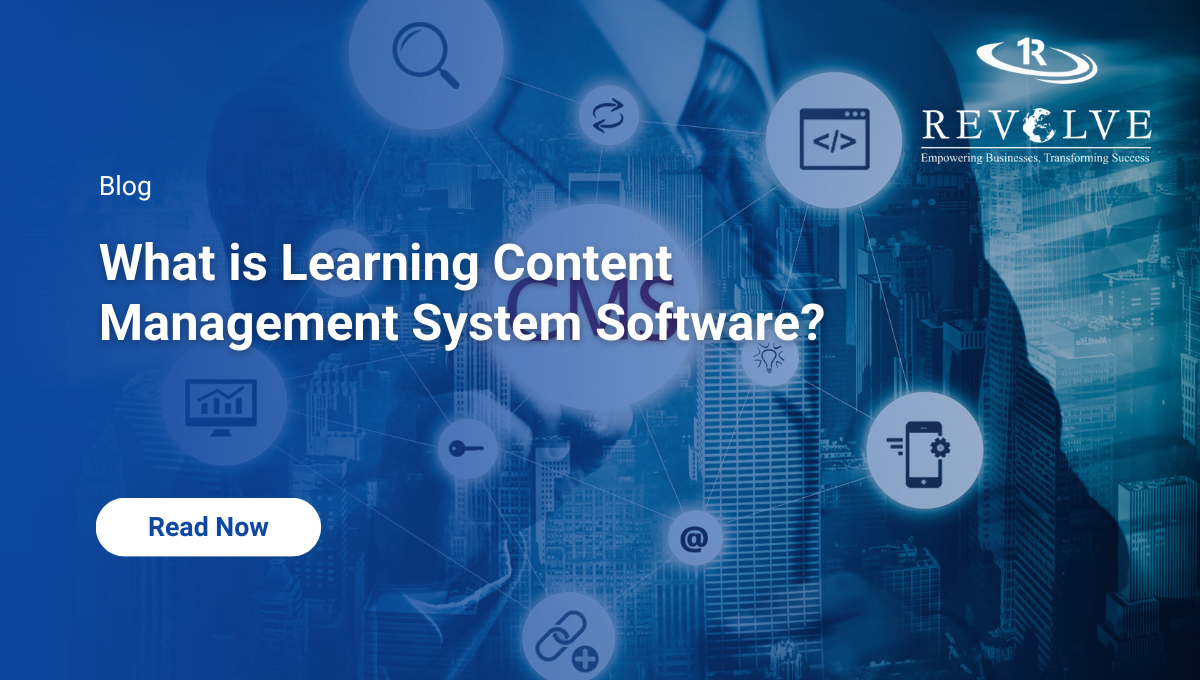What is Learning Content Management System Software?
Introduction To Learning Content Management System :
A Learning Content Management System (LCMS) is a sophisticated software solution designed to streamline the creation, management, and delivery of educational content within a learning environment. Unlike a traditional Learning Management System (LMS), which focuses primarily on the administration and tracking of training programs, an LCMS goes a step further by providing tools to create, organize, and update the actual content used in those programs. The fundamental purpose of an LCMS is to empower educators and instructional designers with a centralized platform for developing and maintaining diverse learning materials, ranging from text-based documents and multimedia presentations to interactive assessments and simulations.
One key feature of LCMS software is its content reusability and modular structure. This allows instructional designers to create content components that can be easily repurposed across multiple courses, ensuring consistency and efficiency in content development. The system often incorporates version control mechanisms, making it possible to track changes, updates, and revisions to content over time. Additionally, an LCMS may include collaborative features, facilitating teamwork among educators and subject matter experts during the content creation and enhancement process.
As technology advances, modern LCMS platforms are increasingly leveraging artificial intelligence and machine learning to offer personalized learning experiences, adapting content to individual learner preferences and performance metrics. Overall, a Learning Content Management System serves as a comprehensive tool to enhance the effectiveness and agility of educational content creation and delivery in today’s dynamic learning landscape.
Learning Content Management System (LCMS) Software: Unveiling the Educational Backbone
In the rapidly evolving landscape of education and training, the demand for efficient, scalable, and organized content management is more pressing than ever. Learning Content Management System (LCMS) software emerges as a robust solution, acting as the backbone of educational institutions, corporations, and online learning platforms. Let’s explore into the details of LCMS, unraveling its significance and functionalities.
- Understanding LCMS: The Basics
- Definition: LCMS is a comprehensive software application designed to create, manage, and deliver educational content efficiently. It goes beyond the capabilities of a traditional Content Management System (CMS) by incorporating features specific to learning materials.
- Components: LCMS typically comprises authoring tools, content repositories, collaboration features, and delivery systems. This multifaceted approach distinguishes it from standard CMS.
Key Features of LCMS
1. Content Authoring:
- LCMS provides robust authoring tools, enabling educators and instructional designers to create engaging and interactive content.
- Support for various content types, including text, multimedia, quizzes, and simulations.
2. Content Management:
- Centralized storage of learning materials ensures easy access, version control, and collaborative editing.
- Metadata tagging for efficient search and retrieval of specific content.
3. Workflow Management:
- LCMS streamlines the content creation process by providing workflow management tools, allowing for collaborative development with defined roles and permissions.
- Approval processes ensure content quality and accuracy before distribution.
4. Learning Analytics:
- Advanced analytics track learner progress, engagement, and performance.
- Insights into user behavior help educators tailor content to meet specific learning needs.
Advantages of LCMS
1. Efficiency and Consistency:
- LCMS enhances efficiency by eliminating unnecessary content creation efforts.
- Ensures consistency across learning materials, reducing the risk of misinformation.
2. Adaptability:
- Supports a variety of learning styles with the ability to create diverse content types.
- Easily adaptable to changes in curriculum, industry standards, or learning objectives.
3. Scalability:
- Scales seamlessly to accommodate growing user bases and expanding content libraries.
- Cloud-based solutions facilitate access from anywhere, promoting remote learning.
4. Cost-Effective:
- Reduces costs associated with manual content creation and distribution.
- Streamlines content updates, minimizing the need for extensive reprints or redevelopments.
LCMS in Educational Institutions
1. Curriculum Management:
- Facilitates the organization and management of academic curricula.
- Allows for easy updates to course materials based on feedback and evolving educational standards.
2. Collaborative Learning:
- Supports collaborative learning environments by enabling students and educators to contribute to content creation and discussion.
3. Assessment and Feedback:
- Integrates assessment tools for quizzes, tests, and assignments.
- Immediate feedback mechanisms enhance the learning experience.
LCMS in Corporate Training
1. Employee Onboarding:
- LCMS streamlines onboarding processes by delivering consistent and standardized training materials.
- Ensures employees have access to up-to-date information on company policies and procedures.
2. Compliance Training:
- Enables organizations to easily manage and update compliance training materials.
- Tracks employee completion and performance for regulatory reporting.
3. Skill Development:
- Tailors training programs to individual employee skill levels and career paths.
- Offers a personalized learning experience for professional development.
Challenges and Considerations
1. Integration Issues:
- Challenges may arise when integrating LCMS with existing systems.
- Compatibility and data migration need careful consideration.
2. User Training:
- Ensuring that educators, administrators, and learners are proficient in using the LCMS is crucial for its success.
- Ongoing training and support are essential for maximizing its potential.
3. Content Standardization:
- Maintaining consistent standards across diverse content creators can be challenging.
- Establishing clear guidelines and templates can mitigate this challenge.
Future Trends in LCMS
1. AI and Personalization:
- Integration of Artificial Intelligence (AI) for personalized learning experiences.
- Adaptive learning paths based on individual learner preferences and performance.
2. Immersive Technologies:
- Incorporation of virtual reality (VR) and augmented reality (AR) for immersive learning experiences.
- Enhanced engagement through interactive simulations and real-world scenarios.
3. Mobile Learning:
- Increased emphasis on mobile-friendly LCMS interfaces.
- Learning on-the-go to accommodate the evolving needs of a mobile workforce and student population.
Conclusion:
Learning Content Management System (LCMS) software stands as a pivotal solution in the realm of educational technology, revolutionizing the way content is created, organized, and distributed within learning environments. Its comprehensive suite of tools empowers educators and instructional designers to navigate the complexities of modern education, offering a centralized hub for crafting diverse and dynamic learning materials. By fostering content reusability and modularity, LCMS software not only enhances efficiency in content development but also ensures consistency across various courses, providing a foundation for a unified and standardized learning experience.
The adaptability of LCMS is a testament to its significance in the ever-evolving landscape of education technology. As it continues to evolve, incorporating artificial intelligence and machine learning capabilities, LCMS enables a more personalized approach to learning. Through tracking and analyzing learner data, these systems can tailor content delivery to individual needs, optimizing the learning experience for each participant.
In essence, Learning Content Management System software represents a technological cornerstone in education, facilitating collaboration, promoting consistency, and harnessing cutting-edge capabilities to shape a more dynamic, efficient, and learner-centric educational ecosystem. In a world where the demand for flexible and engaging learning experiences is paramount, LCMS software emerges as a transformative force, bridging the gap between traditional teaching methods and the evolving needs of today’s learners.
Explore the world of Learning Content Management System Software and revolutionize your approach to education! Click here to unravel the possibilities and enhance your learning experience today!

